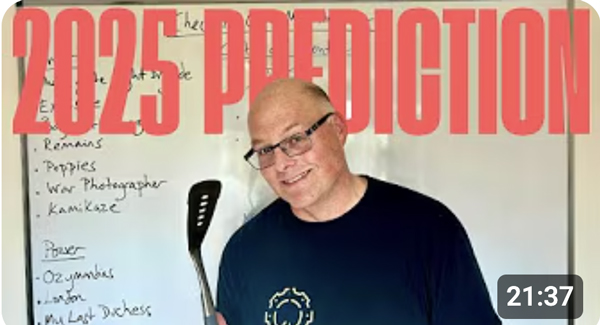Exam boards are to explore taking “action” over the “emerging issue” of social media influencers claiming they can predict exam questions, Schools Week can reveal.
It comes as a quarter of teachers say they have heard of pupils buying so-called “predicted” papers.
Much of this has exploded on social media, but teachers are now sharing “red flags” over certain advice to pupils, while one school has issued a list of YouTubers youngsters should steer clear of.
One TikTok influencer with almost 200,000 followers even mocked students who complained after he issued an incorrect prediction.
The Joint Council for Qualifications (JCQ) is now considering whether to take action or provide more advice to schools.
The body, made up of exam boards, has also asked leaders to “help raise awareness of the risks of predicted papers”.
However, one influencer hit back, saying teachers who fail to prepare youngsters this way are “failing their students”.
Schools Week investigates…
Influencer ‘prediction’ backfires
A snap poll by Student Room of around 200 youngsters on Wednesday showed more than half had adjusted their revision after viewing social media prediction videos.
While the survey was self-selecting, it suggests an “increasing trend of the decentralisation of the revision process” away from schools, said Joe Woodcock of Student Room.
But Jenny Webb, director of English at the Carlton Academy Trust, said there is “no regulation” around this type of revision – pointing out “a teacher has to be vetted by a school”.
Woodcock said “a lot” of the social media influencers “have teaching backgrounds and are very expert, but we have also seen this year a couple of people mis-prepare due to mispredictions”.
Because of you, I’m going to be working in McDonald’s for the rest of my life
Influencer Mr Everything English was at the centre of a social media storm over a GCSE literature prediction video he posted at the beginning of May. He told his 189,000-strong TikTok followers the video was later “trending No 1 on YouTube”.
But on May 12, the influencer – a former assistant head – revealed he had been contacted by pupils saying: “You got your prediction wrong, Sir. Because of you, now I’m going to be working in McDonald’s for the rest of my life.”
We were unable to view Mr Everything English’s video as it has been taken down (although now restored). He did not respond to our approaches.
But in a later video he claimed that “the first five minutes” of his prediction was correct and then branded his critics “set 50 students who don’t know what the word prediction means”.
‘Relying on guesswork’
However, one school leader in the north west, who did not want to be named, recalled how some of her pupils came out of the exam saying: “The predicted question wasn’t right.” Other teachers have reported similar.
In an update earlier this month, JCQ urged teachers to help it “make sure students know the limitations” of the material on social media.
Teachers also said a fake letter purporting to be from AQA that circulated online sparked concern among pupils as it claimed “all” of the board’s English language paper 1 exams “will need to be retaken”. It said this was due to a “miswording” in two of the questions.

Schools Week has also seen one TikTok page advertising “leaked” GCSE papers for £10. A post advertising a maths paper was viewed almost 14,000 times.
A JCQ spokesperson told Schools Week that claiming to predict the content of an exam relied on “guesswork”.
“Even the people who write exam questions can’t be certain which ones will be used and when.
“Our advice to students is that doing practice papers and revision are great ways to prepare for exams, but make sure your preparation is thorough. The best people who can help you do that are your teachers.”
‘You must make predictions for students’
But Dominic Salles, a YouTuber and former head of English who films his own exam predictions, said pupils “literally can’t revise the whole curriculum”.

“You must make predictions to give your students the best chance.”
In a blog post, Salles said 68 per cent of his viewers “say they went up by at least one grade” from their mocks last year. This was based on an online poll Salles himself ran.
He added “departments which fail to prepare students in this way are failing their students – those marks are simply up for grabs, and exam grades are a zero-sum game.”
However, he also noted one of his English literature predictions was that those studying Macbeth would be tested on guilt. But the “actual question was ambition”.
While “thoughtless students” might “feel let down”, many would have “managed to apply what I taught” to what came up in the exam, he said.

But Pepe Di’Iasio, the general secretary of the Association of School and College Leaders, warned the proliferation of predicted papers left children “at risk of relying on resources of uncertain quality … and finding themselves unprepared for the questions in the real exam”.
Exam boards are now investigating whether to take wider action.
JCQ said it would work with schools and colleges to take “a thorough look” at the issue and what action it might take.
The body would not divulge what that might be, but AQA has pursued copyright breaches and used injunctions to clamp down on exam paper cheats previously.
‘Not the shortcut pupils hoped’
An examiner report from AQA, written after last year’s GCSE English literature exams and seen by Schools Week, said the “ubiquitous nature” of comments that were “not fully understood… illustrates the increasing use of social media for revision”.
One example was pupils describing Lady Macbeth “as a proto-feminist or as a femme fatale without demonstrating understanding of these concepts”.
In another report from the same year, AQA told pupils some of these resources “might not be the effective shortcut that you hoped… often, the comments they make and advice they give is misleading”.
One marker, who asked to remain anonymous, said about 10 per cent of the papers they’d seen this year included “chremamorphism”, a term mentioned in Mr Everything English videos.

Mr Everything English | Tiktok
Some of the social media accounts also sell predicted papers.
Teacher Tapp figures show 27 per cent of 4,500 teachers had heard of pupils buying “predicted” papers or what they believed were leaked copies of upcoming exams.
KrissTuition sells biology, chemistry, physics, maths and English exam prediction papers for up to £2.99 each. Two of its bosses have TikTok accounts with more than 167,000 followers combined.
It claims some of its predicted papers last year “reached 60-70 per cent accuracy”. Schools Week asked for evidence to back up this claim, but the company could not immediately provide it.
‘Exam-saving rule’ is ‘not true’
In one TikTok post, published in March and viewed almost 600,000 times, it told those GCSE entrants that the so-called “five-year rule” could “save your exams”.
Before plugging a 10 per cent discount, it claimed pupils could “figure out what must be assessed in this year’s GCSEs” by looking “through the last four years’ worth of exams”.
“We’ve spent hundreds and hundreds of hours collectively… figuring out exactly what must, must, must come up this year. We wrote predicted exams based on those things.”
We’ve figured out exactly what must, must, must come up this year
When asked about the five-year rule, AQA said it was “simply not possible” to predict what would come up in an exam.
Ofqual guidance, last updated in 2020, says boards “must test all the content set out in their specifications over a number of years”.
Krzysztof Machnik, KrissTuition’s founder, said references to the “five-year rule” were based on information from an AQA webpage that was “taken down… in April 2025”. Machnik sent us screenshots of the information.
He insisted KrissTuition’s approach was “aligned” with Ofqual’s guidance.
But the company would now introduce “clear disclaimers in all our materials to reinforce that these resources are intended only as supplements – not replacements – to revision”.
‘Predictions, not guarantees’
Primrose Kitten advertises its A-level and GCSE predicted papers on TikTok. Followed by almost 40,000 people, it sells the documents – which come with mark schemes and walk-through videos – for up to £30.
But its website stresses these were “predictions, not guarantees”, adding: “It’s vital to revise all your topics to ensure you’re fully prepared.”
A company spokesperson said it “explicitly and consistently” reminded pupils that it had “no knowledge” of what would appear in exams.

The papers were “simply one part of the broad and comprehensive revision toolkit we provide”.
Sarah Hannafin, head of policy at the school leaders’ union NAHT, noted that while it was “possible” to track areas that had appeared before, this had no bearing on whether it would appear in future papers.
The school leader in the north west stressed that youngsters were also “not able to think critically” when viewing content online. “A lot of [the influencers] will have vulnerable audience members in that sense.”
Trust’s ‘red flag’ checklist
Carlton Academy Trust, which runs nine Yorkshire schools, is sharing documents with pupils and parents outlining the “red flags” to look out for on social media.
An early draft puts “grade 9 vocabulary” among its red flags. It also warns against being told to memorise whole essays or chunks of essays and to write a specific number of sentences.
The head of English of a Midlands school told pupils in an assembly that some people flogging predictions “did not have their grades at the forefront of their minds – it’s clicks and quick wins”.
She hosted an online revision session the night before a GCSE exam to ensure pupils were not using social media to cram. The teacher also handed out a literature revision guide that listed “recommended YouTubers” and those to avoid.
The north west school leader also viewed a video with her class, breaking down “this is where it’s wrong and this is why it’s bad for advice”. She said secondaries would have to devise whole-school strategies to limit the spread of exam misinformation.
Fifty-eight per cent of teachers have had to correct a misconception picked up from social media more than once this year, according to a Teacher Tapp poll.
There are also concerns this is increasing anxiety over exams.
An ASCL survey showed 77 per cent of teachers reported seeing mental health issues related to assessment anxiety last year.
Hannafin said that pupils’ use of online predictions “highlights the pressure” they are under as they must navigate “so much content” – a process that could be “completely overwhelming”.
“The curriculum and assessment review is an opportunity to change this and ensure that the content in qualification specifications and the volume of exams is reduced.”
Clarification: We anonymised the name of a school leader quoted in this article after publication.
















A lot of students are turning to predicted exam questions online because yes they do want to cut corners, but this is because the system feels overwhelming. GCSE courses are broad, with little time to revisit or consolidate learning properly, and pupils are expected to revise for up to ten subjects at once. Schools are under pressure to deliver results, and this can lead to an emphasis on exam technique over real understanding. At the same time, social media influencers are filling a gap where structured revision support is patchy or inaccessible. Young people are used to fast content and instant answers, and they trust these sources because they’re relatable, visible and easy to follow. For some, it’s also about managing stress and trying to make revision feel more manageable when they’re already burnt out or anxious.
I think we’re going to have to wait for the curriculum review to see if some of these pressures will be reduced. In the meantime, schools should be prioritising critical thinking about all aspects of social media. It’s not just around exam preparation, there’s issues with all of it.
Also, I think we have to give some credit to the majority of these influencers who have done extensive research into the questions that the exam boards use, how often the different areas come up and identifying commonalities. These people, who are often real teachers teaching the subject every day, really want the people watching their channels to succeed because they can see a gap.
I write and sell exam prep papers, although I don’t offer ‘predictions’, and I have an MA in academic assessment as well as a PGCE and over 15 years of experience, so I feel I can comment on this.
I’ve watched the YouTubers mentioned in the article and their advice is genuinely helpful. The prediction videos mentioned are fairly tongue-in-cheek, but I can see how a disclaimer stating the difference between probable and certain would be helpful (like how #ad is required for adverts on social media). While it’s easy to blame the kids for believing it, it’s not really their fault if they haven’t been educated around this sort of thing. Unfortunately, school stops at the gates and the real world rarely gets a look in.
Of course, the real elephant in the room is the over-reliance on terminal exams and their associated grades. Some of these kids are looking for a short cut, fine, but others are actually worried about failing and ruining their lives because that’s what they’ve been told will happen. Remove the stress and finality of the grades (A final grade based on more informal, summative assessment through KS4? A combination of the two, favoring the best result for a fairer, more rounded outcome?) and the desire for prediction videos will go away.
Again though, I subscribe to both channels mentioned in the article and have nothing but respect for the teacher-creators involved.
If you’re interested, I wrote a piece on how to fix the KS2 SATs a couple of years ago for the TES: https://www.tes.com/magazine/author/carl-headley-morris
It’s such a shame that kids are being pressured by these tests and it proves tests are a waste of time compared to other methods. The mental stress recorded from children in primary school upwards shows that tests are one of the worst ways of recording progress. Real life does not work like a test and you would rarely be expected to do something without having research available. The Finnish school system does not use standardised test and their students knowledge is ranked among the top in the world compared to other countries. Not to mention the sheer ridiculousness of being expected to remember the entirety of the curriculum. That’s like asking someone to explain every aspect of their job in one go without having any logs/timetables/access to previous tasks they’ve done. I don’t see why kids need to be pressured to the point of relying on predictions. It’s unfair and damaging.